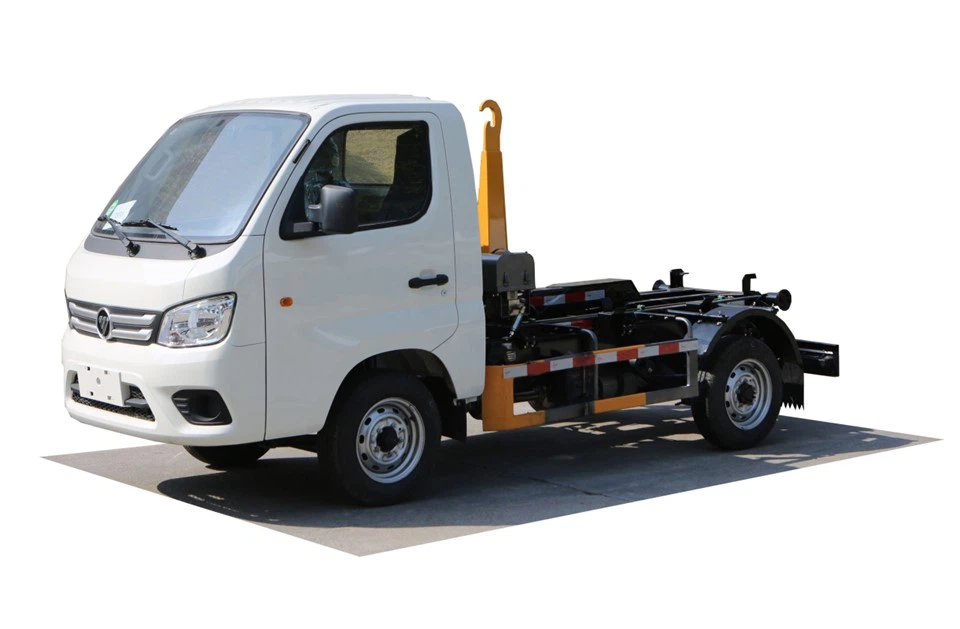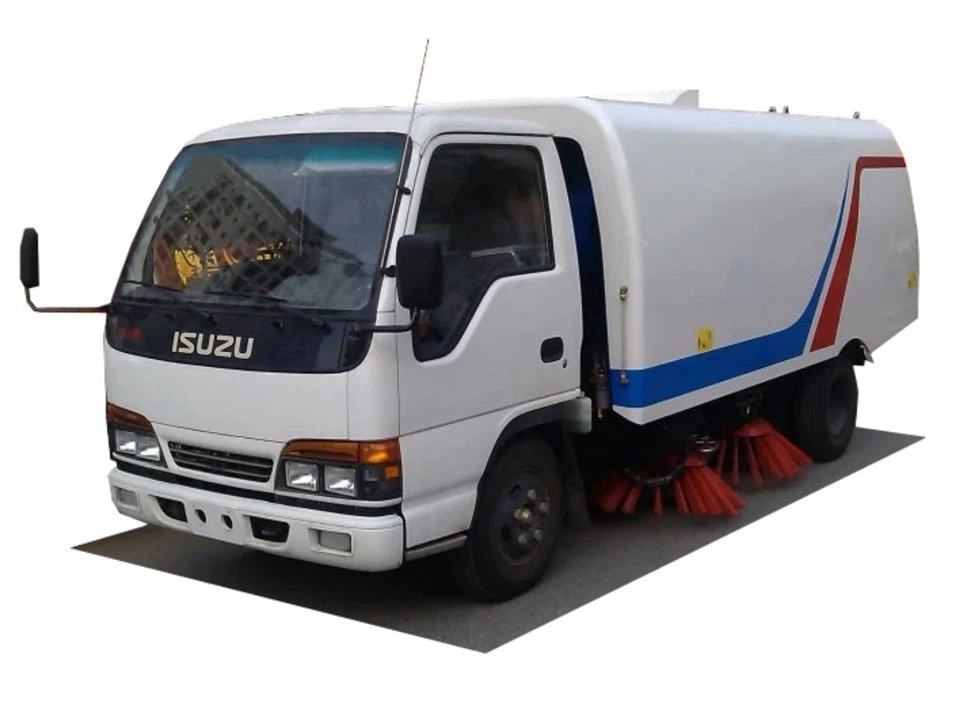Complete Guide to Slurry Seal Trucks: Understanding Their Importance and Applications

Introduction

Slurry seal trucks are essential vehicles in the maintenance and preservation of asphalt surfaces. By applying a mixture of asphalt emulsion, aggregate, and additives, these trucks significantly enhance the lifespan of roads, parking lots, and other paved areas. This article will provide an in-depth understanding of slurry seal trucks, their applications, benefits, and maintenance practices, ensuring you gain comprehensive insights into this vital piece of machinery. From technical specifications to practical examples, this guide aims to be a valuable resource for professionals and enthusiasts alike.
What is a Slurry Seal Truck?
A slurry seal truck is a specialized vehicle designed to mix and apply slurry seal, a blend of asphalt emulsion, fine aggregate, and other additives. These trucks are equipped with advanced mixing and pumping systems that ensure consistent application across surfaces. They play a crucial role in sealing pavements to prevent water intrusion, enhance surface texture, and extend the life of asphalt roads.
Key Components of a Slurry Seal Truck
Understanding the main parts of a slurry seal truck helps in recognizing its functionality. Here are the vital components:
- Mixing Chamber: Where the components are blended before application.
- Pumping System: Used to transport the slurry to the application nozzle.
- Application Bar: Ensures an even and controlled application of the slurry.
- Distribution System: Distributes the mixture uniformly over the surface.
- Calibration System: Adjusts the mixture proportions as needed.
Applications of Slurry Seal Trucks
Slurry seal trucks are widely used for various applications, making them a versatile tool for pavement maintenance.
Road Maintenance
Regular applications of slurry seal on roads significantly reduce the need for extensive repairs. This is especially crucial in urban areas where road traffic is high.
Parking Lot Rehabilitation
Pavement deterioration in parking lots can lead to safety hazards. Utilizing slurry seal trucks to apply a new surface treatment restores functionality while improving aesthetics.
Airport Runway Preservation
Airports benefit from slurry seal trucks to maintain runway surfaces, ensuring safe landings and takeoffs by providing a skid-resistant surface.
Residential Street Treatment

Homeowners associations can utilize slurry seal trucks to maintain roadways within neighborhoods, prolonging the service life of these surfaces.
Benefits of Using Slurry Seal Trucks
The advantages of employing slurry seal trucks in pavement management are numerous:
Cost-Effective Solution
Using slurry seal trucks is often more economical compared to full resurfacing or reconstruction. This cost efficiency makes them popular among municipalities and private contractors.
Environmental Benefits

Slurry seal applications can utilize recycled materials, reducing environmental impact while conserving valuable natural resources.
Improved Safety
An effective slurry seal application enhances skid resistance, minimizing accidents caused by slick pavement conditions.
Extended Pavement Life
Regular use of slurry seal trucks can effectively double the lifespan of asphalt surfaces by protecting them from water, oxidation, and UV damage.
Choosing the Right Slurry Seal Truck
When selecting a slurry seal truck, several factors should be considered to maximize performance and cost-efficiency:
Truck Specifications
Evaluate the truck’s capacity, engine performance, and mixing technology. Look for energy-efficient models that provide superior mixing performance.
Application Features
Assess features such as adjustable spray patterns, material feed rates, and user-friendly controls that contribute to effective results.
Brand Reputation
Research vendors and manufacturers with a proven track record in durability, service support, and spare parts availability. This can significantly affect long-term investment.
Maintenance and Support Services
Before purchasing, make sure the manufacturer offers comprehensive support and training for maintenance, parts availability, and repairs.
Practical Tips for Operating Slurry Seal Trucks
Operating a slurry seal truck effectively requires knowledge and caution. Below are some practical tips:
Pre-Operation Checks
- Inspect the mixing chamber for any debris or blockages.
- Check hydraulic systems for leaks.
- Ensure all safety equipment is functioning properly.
Proper Material Preparation
Ensure all raw materials are within specification for optimal performance. Consistency in material is key to a successful application.
Application Technique
Maintain a steady speed and consistent cutting edge when applying slurry to achieve an even coat. Adjust application rates based on surface conditions.
Post-Application Care
Employ proper curing techniques and educate the public about not driving on fresh slurry seal until it’s completely cured. This could take several hours.
Common Challenges with Slurry Seal Trucks
Despite their advantages, users may encounter challenges when operating slurry seal trucks.
Weather Conditions
Cold or wet weather can inhibit proper curing. It’s advisable to monitor forecasts and plan operations accordingly.
Material Compatibility
Sometimes, the emulsion used may not bond well with existing asphalt. Conducting tests can prevent future issues.
Operator Training
Inexperienced operators may struggle with machinery settings and controls. Ensure that operators receive comprehensive training before handling equipment.
FAQ Section
What is the average lifespan of a slurry seal application?
The average lifespan can range from 5 to 10 years, depending on traffic conditions, weather factors, and maintenance.
Can slurry seal be applied in cold weather?
Generally, slurry seal should not be applied in temperatures below 50°F (10°C) and should not be used in wet conditions. It’s important to refer to product specifications.
How often should roads be treated with slurry seal?
Typical recommendations suggest applying slurry seal every 5 to 7 years to maintain optimal road conditions.
What are the maintenance requirements for slurry seal trucks?
Regular cleaning of the mixing tank, checking hydraulic fluids, and inspecting spray systems are essential maintenance needs for slurry seal trucks.
Is slurry seal environmentally friendly?
Yes, many slurry seal products use recycled materials and have a lower environmental impact compared to other paving methods.
Can I use slurry seal on a concrete surface?
While primarily meant for asphalt, slurry seal can be used on some concrete surfaces. Tests are recommended to ensure bonding and effectiveness.
Conclusion
Slurry seal trucks are an invaluable asset in pavement maintenance and preservation strategies. By understanding their components, applications, and benefits, professionals can make informed choices that lead to better road conditions and extended surface life. With proper operation, training, and maintenance tips, the efficient use of slurry seal trucks can be achieved, ultimately saving costs and improving safety on the roads.
